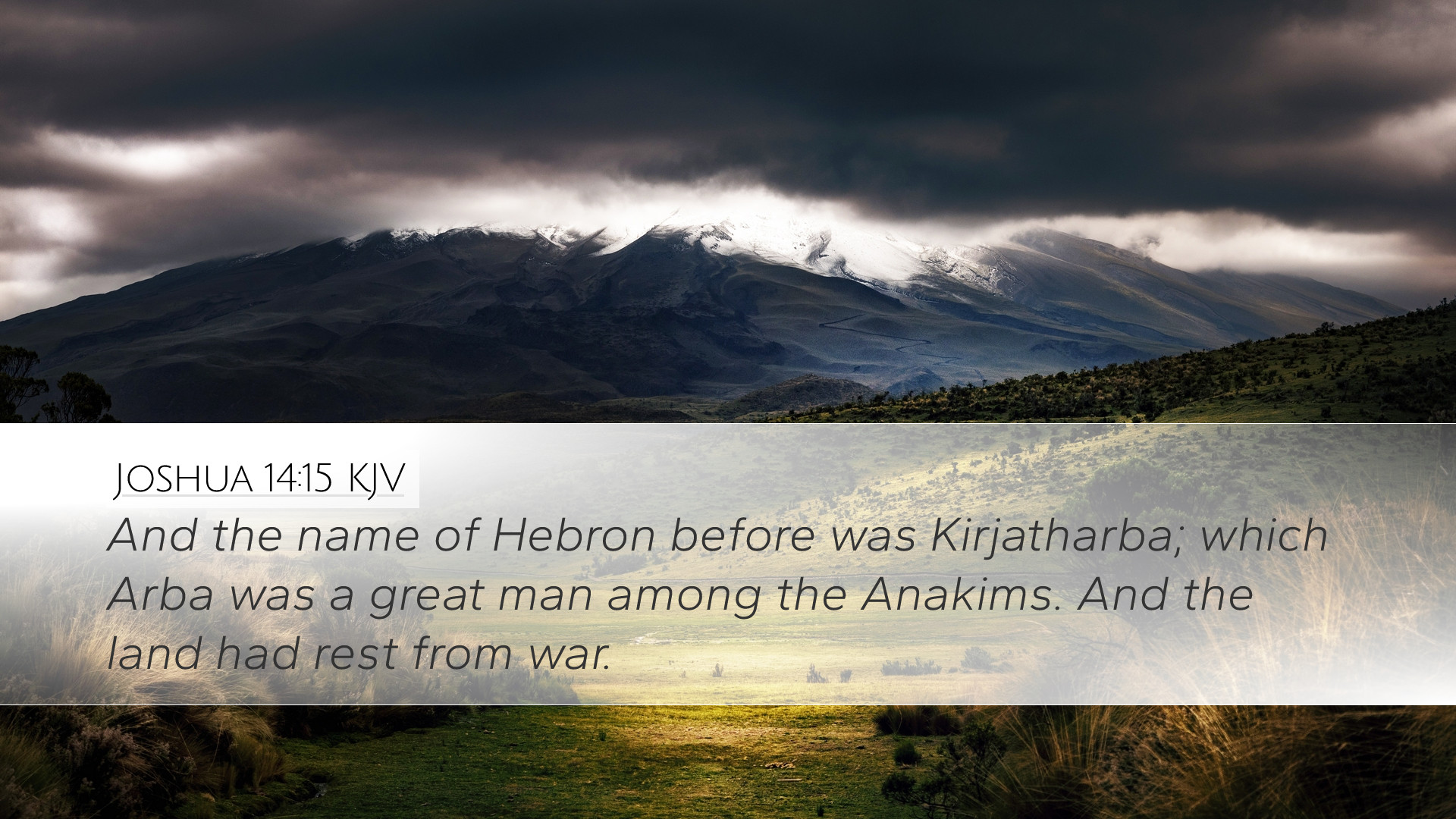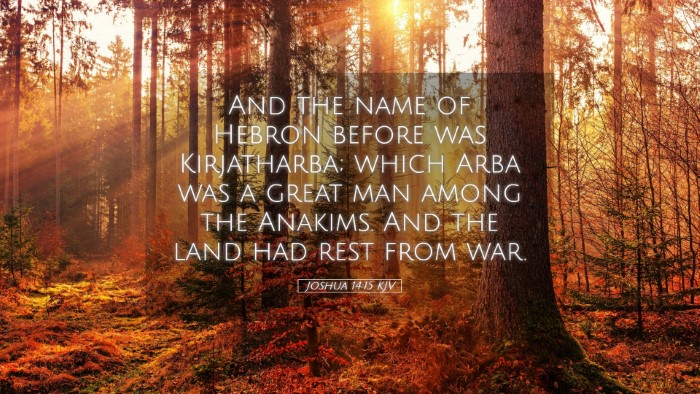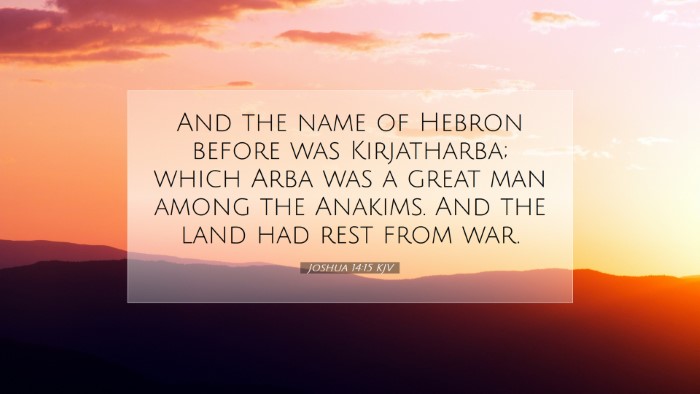Old Testament
Genesis Exodus Leviticus Numbers Deuteronomy Joshua Judges Ruth 1 Samuel 2 Samuel 1 Kings 2 Kings 1 Chronicles 2 Chronicles Ezra Nehemiah Esther Job Psalms Proverbs Ecclesiastes Song of Solomon Isaiah Jeremiah Lamentations Ezekiel Daniel Hosea Joel Amos Obadiah Jonah Micah Nahum Habakkuk Zephaniah Haggai Zechariah MalachiJoshua 14:15
Joshua 14:15 KJV
And the name of Hebron before was Kirjatharba; which Arba was a great man among the Anakims. And the land had rest from war.
Joshua 14:15 Bible Commentary
Bible Commentary on Joshua 14:15
Joshua 14:15 states: "And the name of Hebron before was Kirjatharba; which Arba was a great man among the Anakims. And the land had rest from war."
Introduction
This verse is situated within the narrative of the division of the Promised Land, illustrating a significant transition from conquest to settlement. It highlights the victory over formidable enemies and the peaceful resolution that follows. In Joshua 14, the narrative particularly emphasizes Caleb's inheritance, which is both a personal story of faith and a communal legacy for the Israelite people.
Commentary Insights
1. Historical Context
Matthew Henry notes the historical importance of Hebron, previously known as Kirjatharba. The name change signifies a transformation from a place characterized by conflict to one of security and rest. Kirjatharba was named after Arba, a notable giant among the Anakim, who were renowned for their formidable stature and strength.
2. The Significance of Names
Albert Barnes emphasizes the significance of naming places in the Scriptures. The name "Hebron" carries connotations of fellowship and community, indicating the transition of the land into a dwelling place of peace for the Israelites. The name "Kirjatharba" reflects the histories of struggle and adversity, and this historical context enriches our understanding of God's deliverance over the oppressive forces represented by the Anakim.
3. The Legacy of Caleb
Adam Clarke draws attention to Caleb's legacy in this passage. Caleb was one of the spies who brought a good report back to Moses about the land. His unwavering faith and courage led him to request his inheritance in Hebron, recognizing it as a land of promise despite the giants. His pursuit exemplifies the faithfulness of God in fulfilling promises to those who remain steadfast in belief.
4. The Role of Faith in Victory
The victory over the Anakim, as mentioned in this verse, can be seen as symbolic of the trials faced by believers. Just as the Israelites faced literal giants, modern readers are reminded of the personal and spiritual giants that they may encounter. Matthew Henry suggests that the peace that follows conquest instills a recognition of God's sovereignty and faithfulness. Rest from war is indicative not only of physical peace but a spiritual state that believers strive towards.
5. Rest from Conflict
The phrase "the land had rest from war" carries immense theological weight. Barnes articulates that this moment of rest is a reflection of divine providence. It represents the culmination of God’s promise to bring His people into a place where they can worship and flourish without the fear of outside attack. This serves as a metaphor for the spiritual rest found in Christ, where believers can find refuge from the turmoil of this world.
Theological Reflections
- Divine Promises: The inheritance of Hebron reinforces God's unwavering commitment to His people. He fulfills His promises to those who pursue His call with faith.
- Courage in Adversity: Caleb’s example encourages believers to face their fears and challenges with faith. Despite the giants that may loom, faith in God can lead to significant victories.
- Transformation of Identity: The change from Kirjatharba to Hebron signifies how God transforms lives. What was once a place of fear became a foundation for community, worship, and God’s covenant.
- Rest and Peace: The concept of divine rest serves as a precursor to the New Testament vision of salvation. Jesus offers rest that transcends the physical, leading His followers to a deeper spiritual peace.
Conclusion
Joshua 14:15 is not merely a historical record but serves as a rich source of insights for pastors, students, theologians, and scholars. The text illustrates God’s faithfulness, the importance of courage in the face of opposition, and the profound peace that comes from divine promise. The legacy of Caleb and the transformation of Hebron encourage believers to acknowledge and seize the inheritance promised by God—both in the physical realm and in the spiritual journey with Christ.


